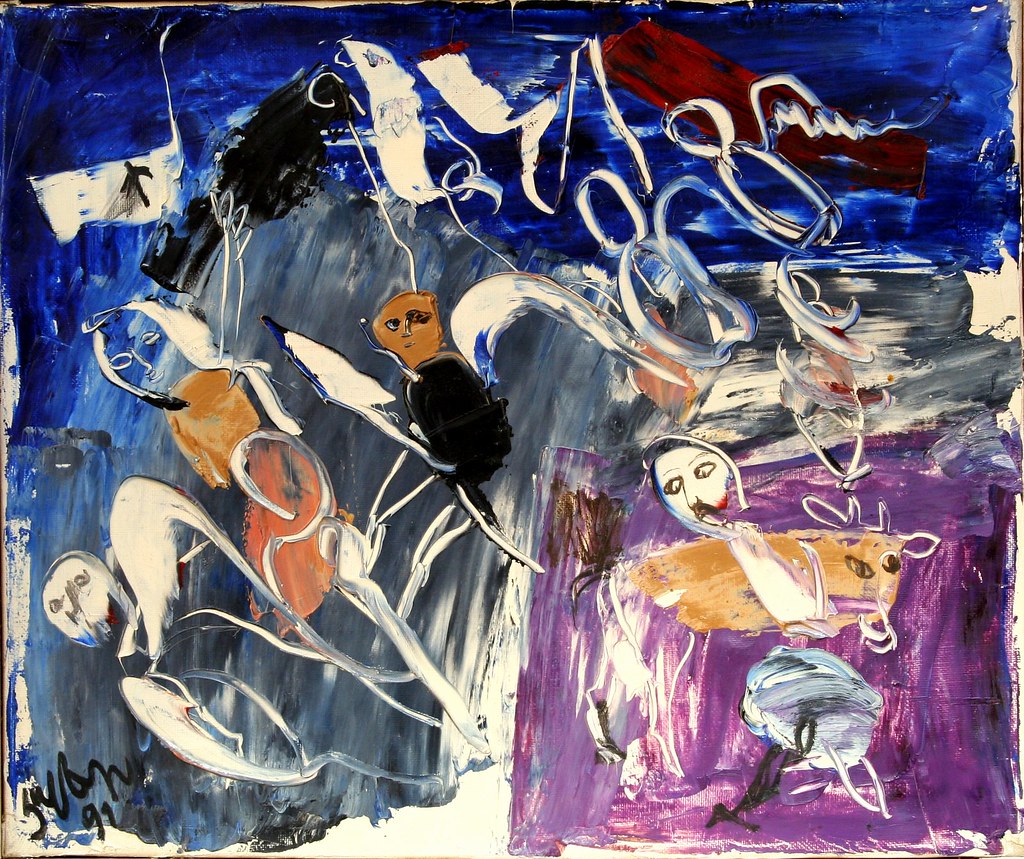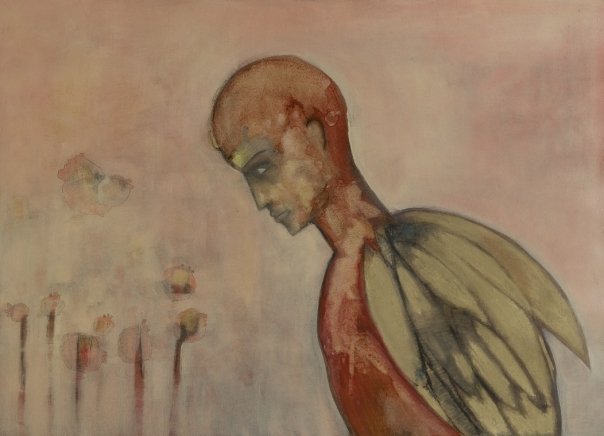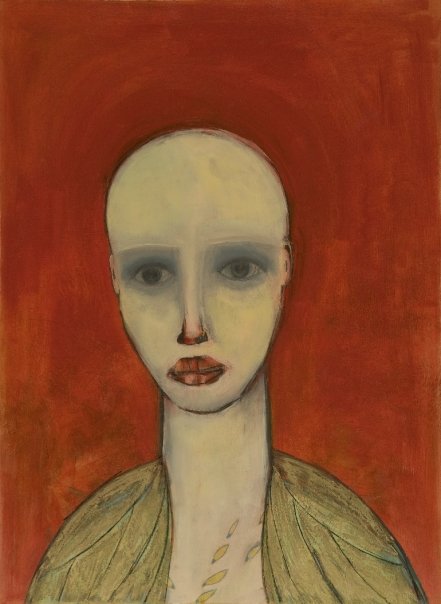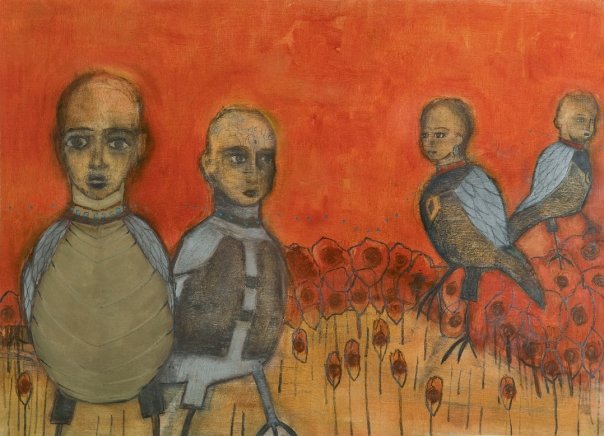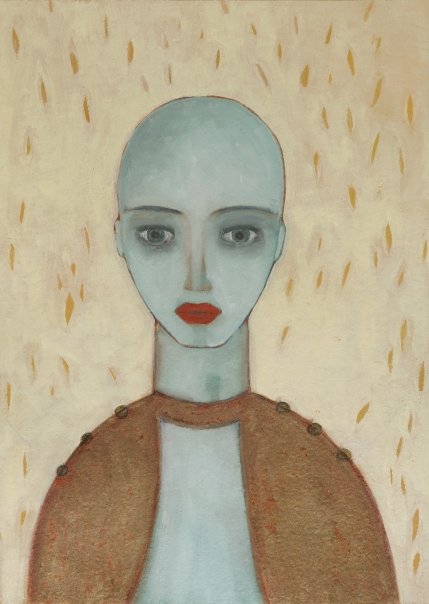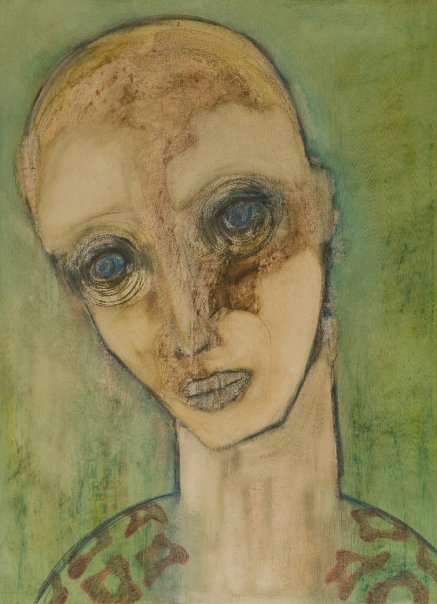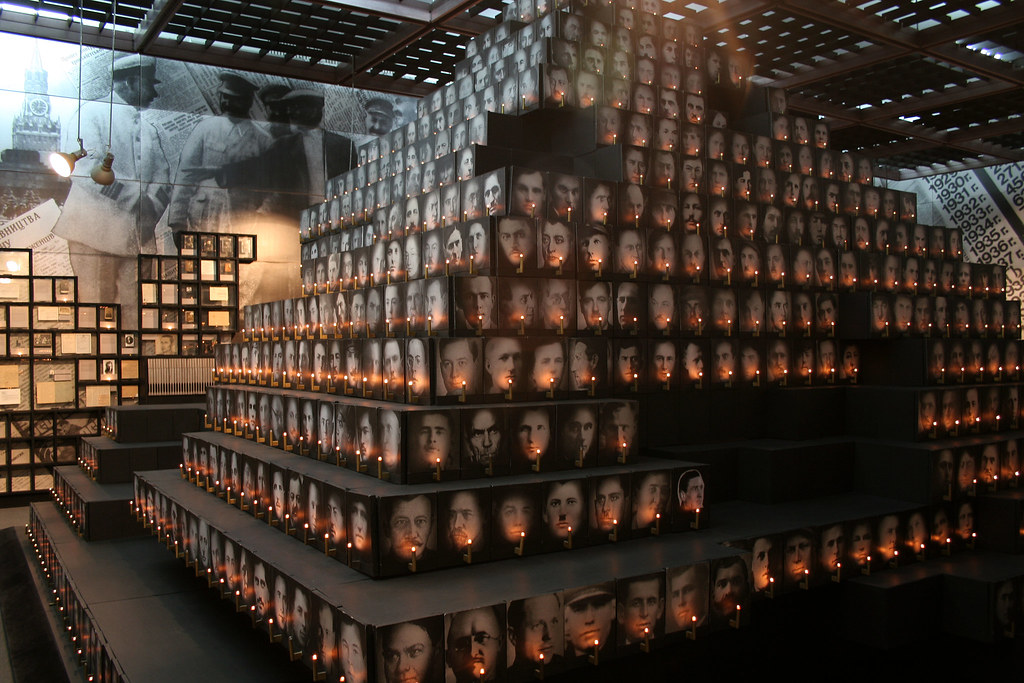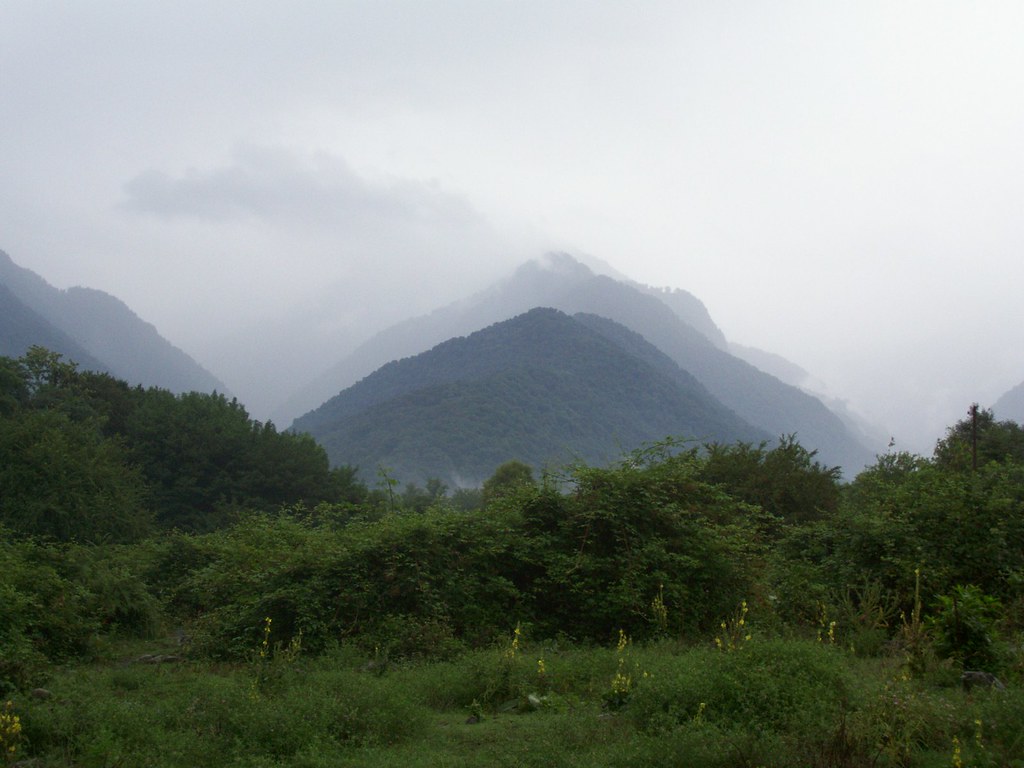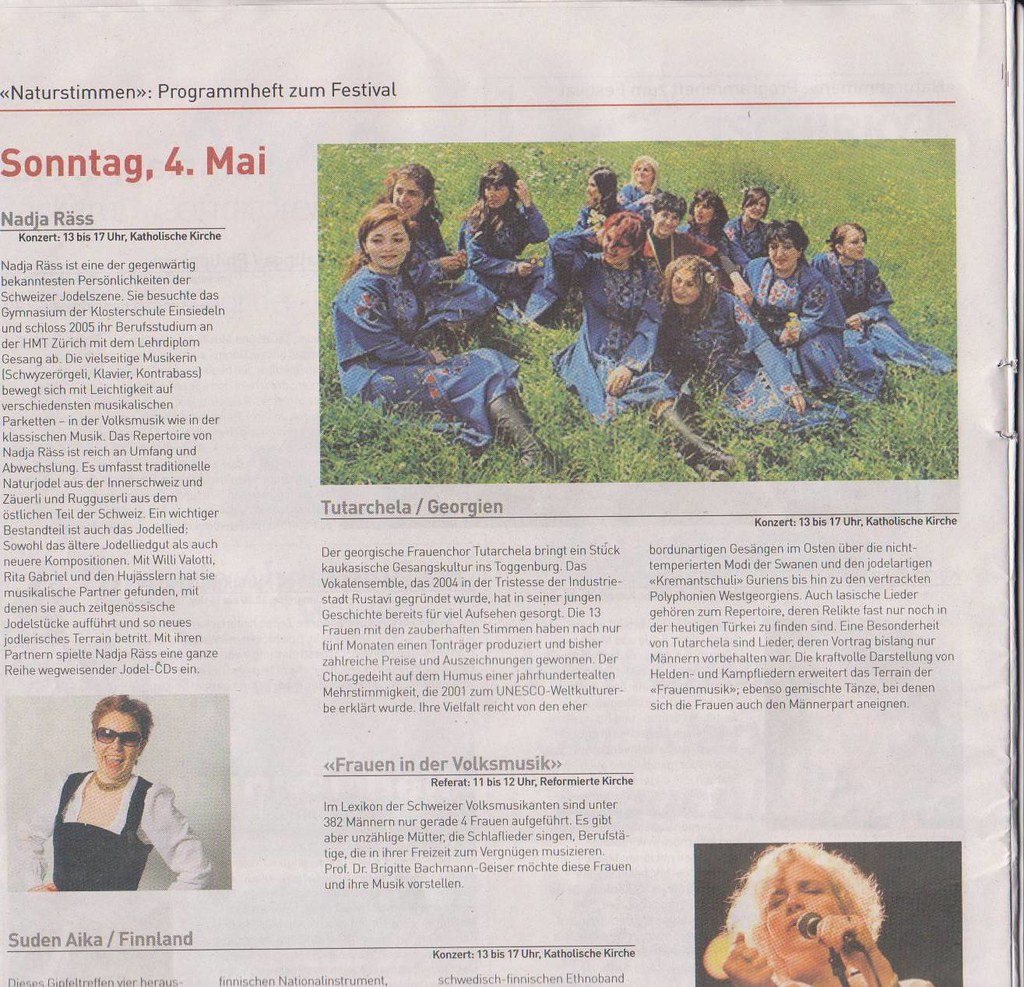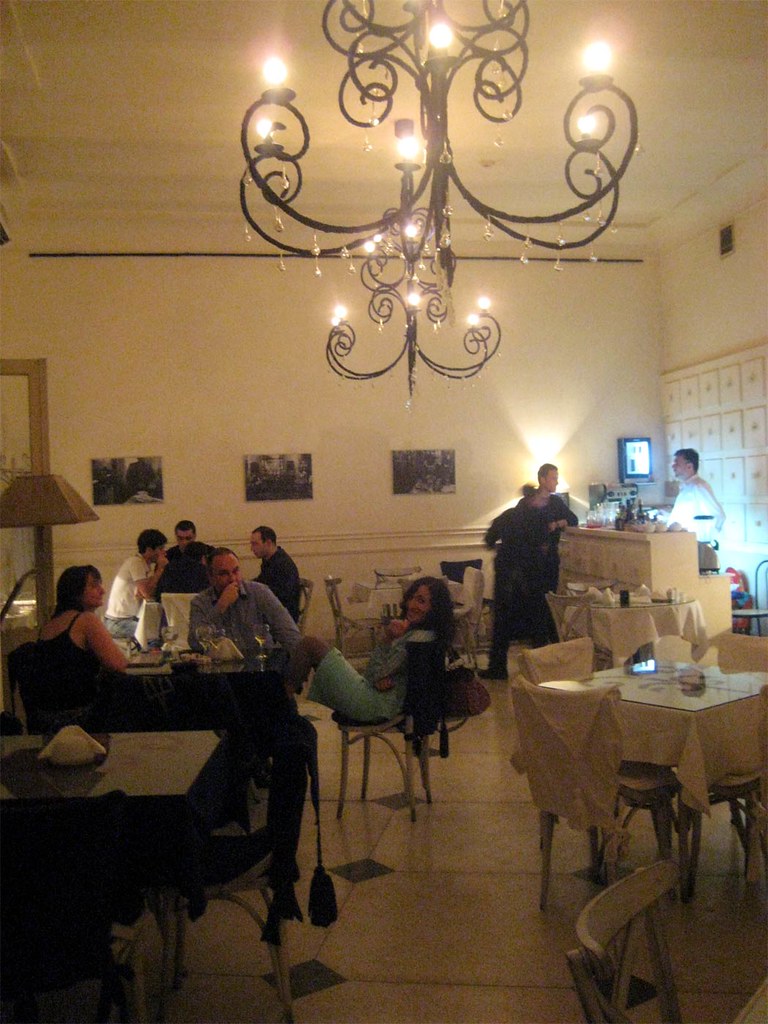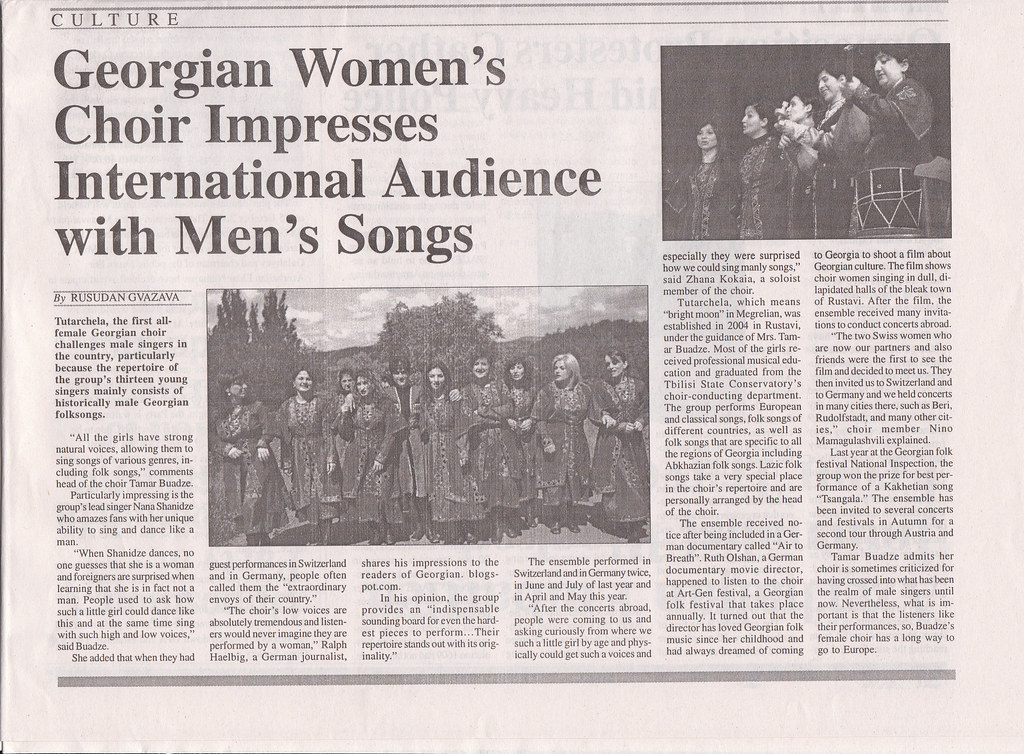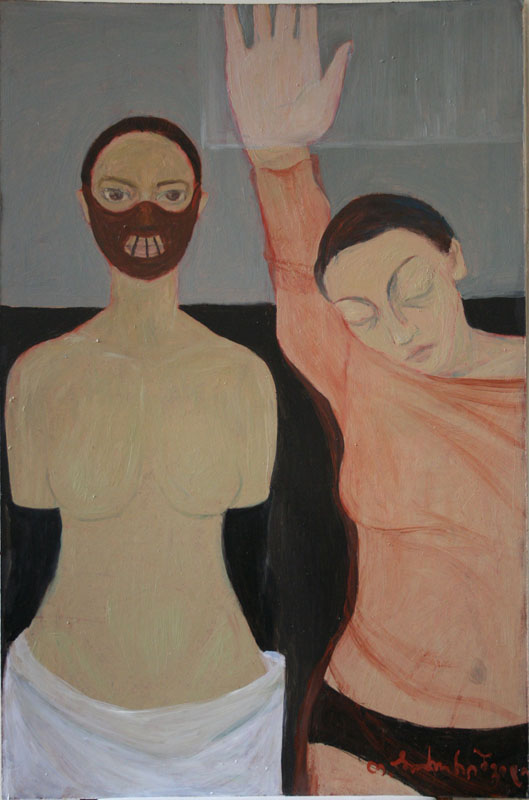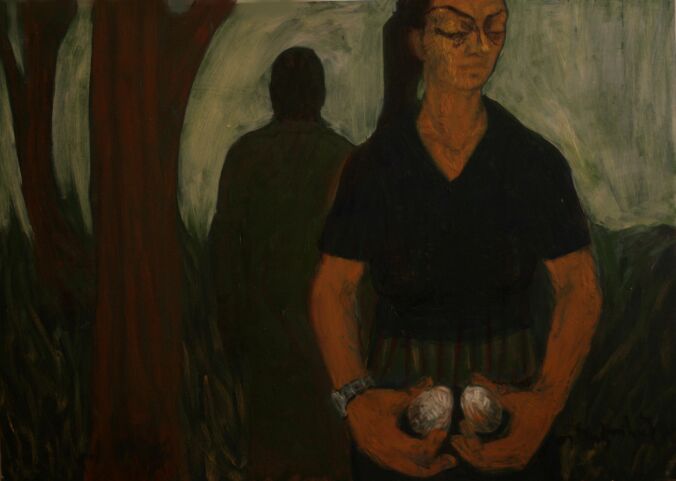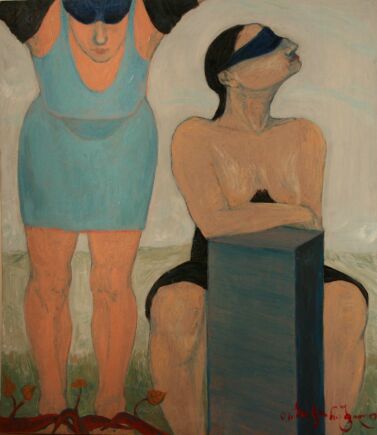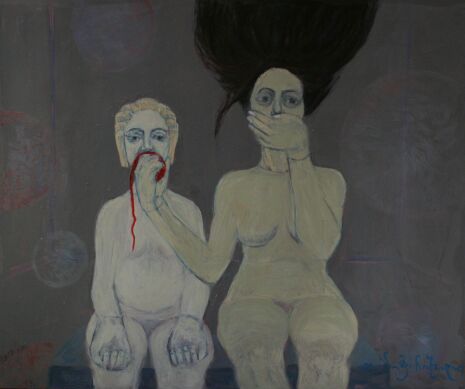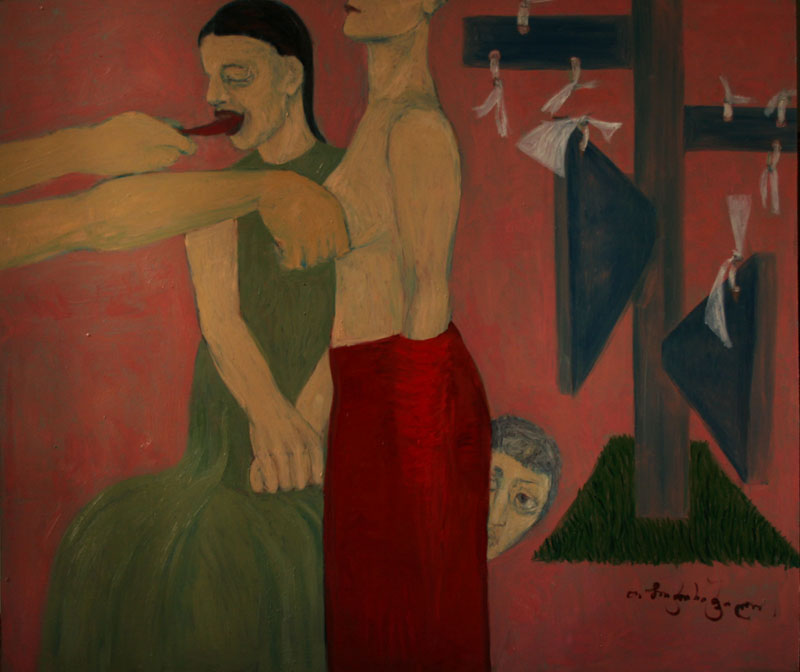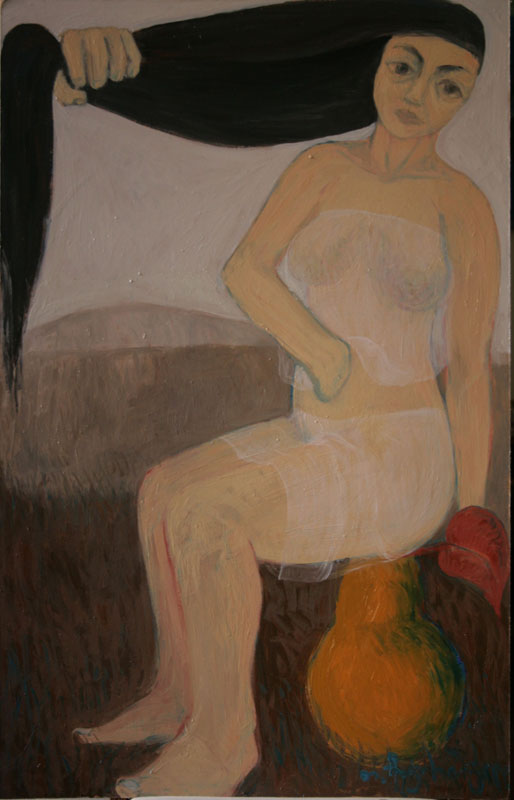Letzte Minuten am Flughafen in Tblissi. Neben mir sitzt genau der gleiche Passagier, der mich bereits vor fünf Tagen nach Georgien begleitet hat. Ein großer, blonder Lette. Seine wilde Mähne sitzt wie ein Nest auf seinem Kopf. Bekleidet ist er mit einem froschgrünen Hemd - auffällig in diesem eintönigen Schwarz-Braun-Beige-Kolorit der Kaukasen. Was soll ich nun abschließend denken über dieses Land, in dem ich geweint und gelacht habe, das mich zum verzweifeln und mir zugleich einen neuen Blickwinkel auf die Welt um mich herum und mein kleines, hübsches Leben ermöglicht hat. Vielleicht sollte ich Danke sagen. Also, madlobt sakartvelo. Didi, didi madloba.
 Ich muss zugeben, es schmerzt mich nicht allzu sehr zu gehen. Ich werde der Zeit hier nicht hinterher trauern, dazu war sie viel zu anstrengend. Dazu hat sie zu sehr an mir gezerrt. Es ist Januar und ich bin in Tbilisi um Dinge, die ich angefangen habe, zu Ende zu bringen. Jetzt, in diesem Augenblick am Flughafen weiß ich, dass es mir nicht gelungen ist, manches wirklich abzuschließen. Fein säuberlich, in Kästchen. Georgien ist nicht zu Ende zu bringen. Ich bin im Juni 2007 angetreten mit einer mir eigenen Mission: Ich habe eine These aufgestellt um sie zu widerlegen. Ich wollte sie widerlegen, ich wollte etwas anderes finden. Ideale wollte ich finden über Grenzen und familiäre Bande hinweg. Sicherlich, einige wenige haben solche Ideale. Doch letztendlich ist vieles eine "one man, one woman, a husband and his wife show" um meinen guten Freund Günther ein letztes Mal zu zitieren. Auch er verabschiedet sich vom Kaukasus. Und vielleicht hat auch er diesen dicken Klos im Hals, der durch Zweifel und Machtlosigkeit entsteht.
Ich muss zugeben, es schmerzt mich nicht allzu sehr zu gehen. Ich werde der Zeit hier nicht hinterher trauern, dazu war sie viel zu anstrengend. Dazu hat sie zu sehr an mir gezerrt. Es ist Januar und ich bin in Tbilisi um Dinge, die ich angefangen habe, zu Ende zu bringen. Jetzt, in diesem Augenblick am Flughafen weiß ich, dass es mir nicht gelungen ist, manches wirklich abzuschließen. Fein säuberlich, in Kästchen. Georgien ist nicht zu Ende zu bringen. Ich bin im Juni 2007 angetreten mit einer mir eigenen Mission: Ich habe eine These aufgestellt um sie zu widerlegen. Ich wollte sie widerlegen, ich wollte etwas anderes finden. Ideale wollte ich finden über Grenzen und familiäre Bande hinweg. Sicherlich, einige wenige haben solche Ideale. Doch letztendlich ist vieles eine "one man, one woman, a husband and his wife show" um meinen guten Freund Günther ein letztes Mal zu zitieren. Auch er verabschiedet sich vom Kaukasus. Und vielleicht hat auch er diesen dicken Klos im Hals, der durch Zweifel und Machtlosigkeit entsteht.Mein Besuch bei ihm über den Dächern der Stadt war jede Minute wert. Ohne ihn und seine Weisheiten hätte mich Georgien manchmal mit Haut und Haaren aufgefressen. Tblissi versingt im Schnee. Die Bürgersteige sind eisige Spiegelflächen, was die Georgierin nicht im Geringsten daran hindert auf Stöckelschuhen oder in Stiefeln mit zehn-zentimeter Absätzen dahin zu schreiten. Ich hingegen schlittere lieber in meinen festen Winterschuhen mit Profilsohle von einem Stück blanken Trottoir zum nächsten. Das ist zwar nicht ganz so elegant, aber wenigstens habe ich das Gefühl nicht gleich ganz den Boden unter den Füßen verliere.
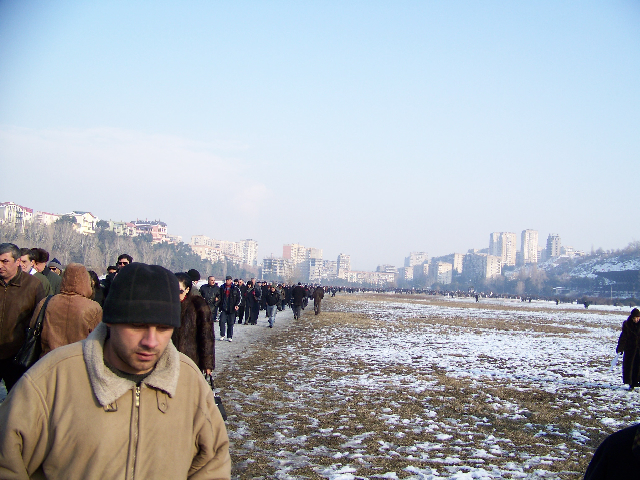
Die Tblisser schlittern auch, in Massen. Sie strömen während der Inauguration des alten, neuen Präsidenten in das Hippodrom. Dort findet die Veranstaltung der Opposition statt. Die Parolen sind heiß und emotional, während sich die Damen der Elite in Pelzmänteln gegen die Kälte schützen. Es geht erneut darum, gegen etwas zu sein. Diesmal ist es Präsident Saakashwili. Zu recht, wie ich finde. Doch das Für ist nicht in Sicht - nicht gedacht, nicht formuliert, nicht erhofft.
 Es ist schön, die georgischen Freunde ein letztes Mal zu sehen, Ketis Familie, Diana und Sandro, Heiner, Iago, Tato. Ich sage ihnen nicht auf Wiedersehen, weil ich spüre, dass es kein Wiedersehen geben wird. Auch sie sind hoffnungslos, trostlos. Ihr Aufbäumen gegen die Staatsmacht ist träge und gelangweilt. Sie ahnen, dass sie nichts zu tun vermögen - und sie werden vorerst Recht behalten.
Es ist schön, die georgischen Freunde ein letztes Mal zu sehen, Ketis Familie, Diana und Sandro, Heiner, Iago, Tato. Ich sage ihnen nicht auf Wiedersehen, weil ich spüre, dass es kein Wiedersehen geben wird. Auch sie sind hoffnungslos, trostlos. Ihr Aufbäumen gegen die Staatsmacht ist träge und gelangweilt. Sie ahnen, dass sie nichts zu tun vermögen - und sie werden vorerst Recht behalten.Die letzten wenigen Stunden verbringe ich unter der Laurents Daunenecke. Er hat leichtes Fieber, es ist heiß, die Schweißperlen rennen kitzelnd meinen Nacken entlang. Und ich weiß, ich werde auch ihn nicht wiedersehen. Draußen auf der Straße bellen die Hunde, die ihre Ziele aufs nackte Überleben beschränkt haben. Nach ein paar Pommes Frites und einem Glas Wein beim Franzosen hat er mich gefragt, ob ich ihn nach Nicaragua begleiten möchte. Er würde mir ein Business-Class Ticket kaufen, damit ich jederzeit entscheiden könne, zurückzufliegen. Er weiß, dass ich nicht ja sagen kann. Er weiß, dass ich mich längst für etwas anderes entschieden habe. Vielleicht fragt er mich gerade deshalb erst jetzt.
Da ist sie wieder: die mutige Parole, deren Laut mit dem Wind verfliegt, sobald man Gefahr läuft wirklich ernst genommen zu werden. Die georgische Opposition muss es wohl ähnlich ergehen. Da haben sie sich zusammen getan, die Linken und die Rechten; die, die sonst die Straßenseite wechseln, wenn ihnen ein roter Genosse oder ein schwarzer Konservist entgegenkommt. Zusammen gegen den Präsidenten, und für ihr neues, demokratisches Georgien. Doch wie soll es aussehen, dieses demokratische Georgien, in dem nichts schwarz-weiß ist, und doch alles irgendwie konform? Wie soll es aussehen, wenn eine Opposition die Oberhand gewinnt, die aufgrund unterschiedlicher Ideologien nur gespalten sein kann? Wie kann eine Demokratie funktionieren, wenn ihr Demos müde geworden ist?
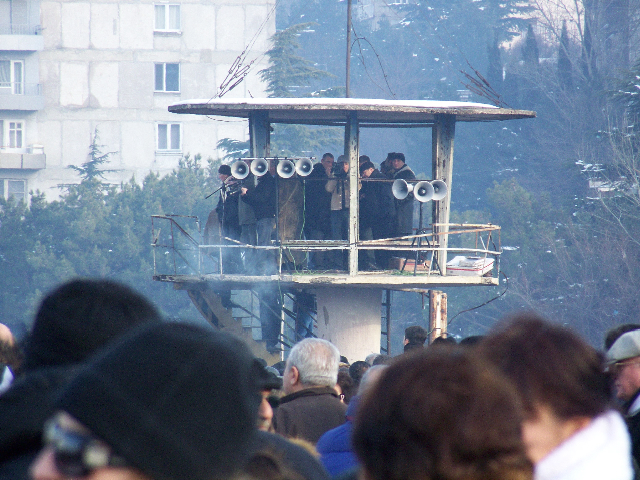
Ich bin auch müde. Es ist fünf Uhr morgens. Ich habe gekämpft um Georgien, mit mir, mit meinen georgischen Freunden, mit deutschen Querulanten und internationaler Borniertheit. Ich weiß nicht, ob es je eine intakte Zivilgesellschaft in Georgien geben wird. Ich weiß nur, dass mein Zeit in Georgien abgelaufen ist, dass ich auftanken muss um mir Parolen anderer anzuhören.
Trauern um mein geliebtes Georgien werde ich erst, wenn es längst zu spät ist, wenn ich woanders bin, wenn die Zeit die Wunden nicht heilt. Georgien wird mich niemals verlassen, es ist in mir, mit mir. Auch wenn ich nie wieder die Tblisser Straßen betreten, den Kaukasus am Horizont entdecken, die Straßenkinder von Gildani berühren, Khinkalis kosten, über den Schnee schlittern oder die Georgier beim singen, schreien, lachen, weinen beobachten werde. Ich weiß doch, wie es sich anfühlt. Für immer.
Kleiner Tipp: Die gesammelten 24 Georgien-Reportagen - demnächst als überarbeitete und redigierte Sonderausgabe des Mitteilungsblattes der Berliner-Georgischen Gesellschaft e.V.Bis dahin natürlich noch in ihrer ursprünglichen Fassung auf http://georgien.blogspot.com/
Photos by Patricia Scherer (Set)
Patricia Scherer in Georgia (Caucasus) (Set)
Teil (23): Reise ohne Wiederkehr
